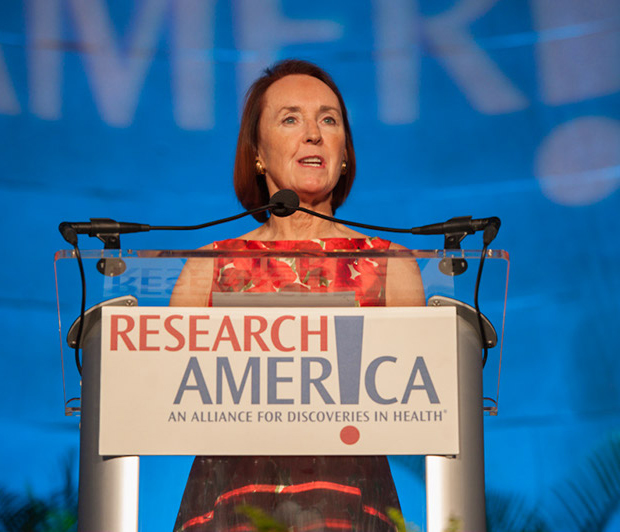The Future is On the Line

Dear Research Advocate,
On The Hill: Debate on bipartisan, bicameral U.S. competitiveness legislation known as USICA (S.1260, H.R.4561) has taken an unfortunate turn. The Senate is seriously considering passing funding for semiconductor manufacturing separately from the broader competitiveness legislation. Separating out semiconductor funding risks leaving the rest of USICA behind. The breadth of S&T priorities included in USICA are needed to re-assert U.S. global competitiveness, build good jobs, and help assure national security.
The Science and Technology Action Committee (STAC) is engaged in a timely ad campaign to create a “surround sound” of urgency on passing USICA; consider sharing STAC’s LinkedIn and Twitter messages with your networks.
At Risk: Small Business Innovation: Included in the House version of USICA is language to reauthorize the Small Business Innovation Research (SBIR) and Small Business Technology Transfer (STTR) programs. By providing seed funding to turn discoveries in the lab into new solutions for patients, these programs are key assets in our efforts to stay globally innovative. Unless Congress acts, SBIR/STTR will expire on September 30, squandering a high impact incentive for U.S. entrepreneurism and job creation. Read SBIR/STTR success stories from the National Cancer Institute to better understand the impact of these programs.
ICYMI: This week’s alliance discussion featured Julia Jester, Associate Vice President of Federal Relations at the Association of American Universities, who highlighted provisions in the competitiveness legislation important to the higher education community, such as new investments in STEM education. (Contact the Research!America membership team to join us and be part of these conversations.)
OSTP Nomination Hearing: Having a seat at the president’s Cabinet table was a long overdue win for science, a decision made at the beginning of the Biden Administration. Arati Prabhakar, PhD, will ably occupy this seat once confirmed by the Senate as director of the Office of Science and Technology Policy (OSTP).
The Commerce, Science, and Transportation Committee will hold a hearing on Wednesday, July 20, at 10 a.m. ET to consider her nomination. Read our statement in support of Dr. Prabhakar’s leadership. We urge Congress to confirm her as swiftly as possible.
What’s Your CIP Code?: The Department of Homeland Security (DHS) uses CIP Codes (Classification of Instructional Program Codes) to maintain its list of STEM degree programs eligible for practical training extensions for students on F-1 visas. Most CIP Codes on the DHS STEM list focus on biological and physical sciences, engineering, and technology; there may be gaps in existing areas, but social and clinical sciences are notably underrepresented.
DHS is soliciting input through August 1 for additional CIP Codes to be added to its list; follow the instructions on the DHS site to encourage DHS to include your field of study.
Expanding the list of STEM fields included on the DHS list widens the pool of talented researchers who can pursue post-doctoral training and put their degrees to use in the U.S.
New GRAD Caucus: Graduate researchers conduct groundbreaking work that strengthens the nation’s economy; at the same time, they are often overlooked and their needs are underrepresented. In support of this essential workforce, the Congressional Graduate Research and Development (GRAD) Caucus launched yesterday, representing the interests of graduate student researchers. The bipartisan Caucus is co-chaired by Representatives Mike Doyle (D-PA), Gus Bilirakis (R-FL), Zoe Lofgren (D-CA), and Stephanie Bice (R-OK).
If one of these is your representative, please thank them; if not, please ask your representative to consider joining this important effort.
The Caucus’ priorities are to “ensure accessibility to graduate school for people of all backgrounds,” “support and develop graduate researchers,” and “provide pathways for future impact” for researchers after graduate school. Learn how to get involved.
Global Health R&D Discussion: American leadership and investment in R&D innovation is critical to global health. You’re invited to join a discussion with USAID’s Bureau of Global Health on the development of its next five-year “Global Health R&D Strategy,” Monday, July 18, 9 to 11 a.m. ET. The discussion, hosted by the Global Health Technologies Coalition, invites global health stakeholders to share their input on future priorities. The current 2017-2022 strategy is available for review. If you can’t attend, email feedback directly to USAID.
Upcoming Alliance Discussion: Join us on Thursday, July 21, from 11 to 11:45 a.m. ET for our next alliance discussion featuring Grace Graham, Chief Minority Council, and Kristen Shatynski, Professional Staff Member, both of the House Energy and Commerce Committee Health Subcommittee. They will share ideas for some potential new efficiencies at NIH among other issues important to the research community.
Commit to Change: As our nation continues to struggle with COVID-19, and watches warily as cases of monkeypox spread across the globe, we are experiencing firsthand the need for robust funding for medical and health research and innovation. You can be a part of the change. Make a gift to Research!America and help transform our nation’s future.
Stay well, stay safe, and stay connected.




